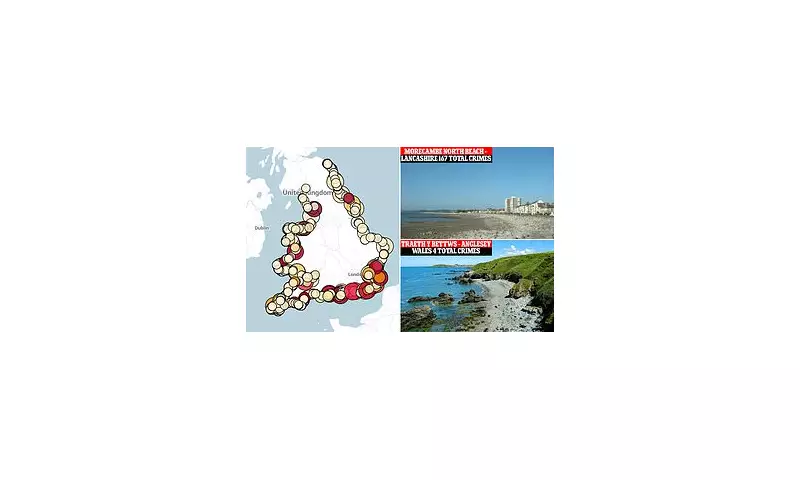
England's picturesque coastline is facing a dual crisis of rampant crime and severe pollution, transforming many beloved seaside destinations into potential health hazards and crime hotspots. A comprehensive analysis of official data reveals a disturbing picture of what lies beneath the surface of the nation's favourite beaches.
The Dirty Truth: Sewage and Pollution Crisis
Shockingly, nearly half of England's beaches have been contaminated by raw sewage discharges in recent years, with popular holiday destinations receiving thousands of hours of untreated waste. Southern Water's operating region emerges as the worst offender, with beaches suffering from over 8,000 hours of sewage releases annually.
The Environment Agency's testing regime has identified multiple beaches where water quality has plummeted to 'poor' status, meaning swimmers risk serious illness from exposure. Popular destinations including Blackpool, Whitstable, and Margate have all received this damning classification.
Crime by the Coast: Soaring Offences
Beyond the pollution crisis, coastal communities are grappling with alarming crime rates. The analysis reveals that seaside towns experience significantly higher levels of theft, violence, and anti-social behaviour compared to inland areas.
Blackpool emerges as the most concerning hotspot, recording over 1,400 crimes per 1,000 residents—more than triple the national average. Other popular destinations including Brighton, Scarborough, and Great Yarmouth all show crime rates substantially above average.
Regional Breakdown: The Good, The Bad, and The Ugly
The South West, despite its reputation for pristine beaches, shows concerning pollution patterns, while the North West struggles with both water quality and crime issues. The interactive data reveals surprising variations even within regions, with some beaches maintaining excellent standards while neighbours just miles away suffer severe problems.
Interactive Tool: Check Your Local Beach
Readers can now explore the comprehensive data through our interactive mapping tool, which provides detailed information on water quality, pollution incidents, and crime statistics for every designated bathing water in England. The tool allows families to make informed decisions about their coastal visits and swimming safety.
Industry Response and Government Action
Water companies face mounting pressure to address the sewage discharge crisis, with regulators imposing record fines for environmental violations. Meanwhile, police forces in coastal areas are implementing targeted initiatives to combat seasonal crime spikes during peak tourist periods.
The government has pledged increased investment in coastal infrastructure and enhanced monitoring, but critics argue that progress remains unacceptably slow given the scale of the challenges.
As summer approaches, this investigation serves as a crucial warning to the millions of Britons planning seaside excursions: the traditional bucket-and-spade holiday now requires careful research and heightened awareness of both environmental and safety concerns.





